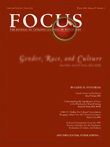From the Guest Editor
“I just want to say one word to you—just one word . . . Are you listening?”
“Plastics,” whispered the older gentleman to the newly graduated Benjamin. “There is a great future in plastics. Think about it. Will you think about it? OK. Enough said.”
—Excerpt from the screenplay The Graduate, by Buck Henry, 1967
Just as the older gentleman whispered to the young man, one of my longtime career mentors recently told me that he whispers, “Geriatrics—there’s a great future in geriatrics” to his younger colleagues and advisees. I could not agree more. Geriatrics is the future for all of us—personally as well as professionally—as educators, researchers, and clinicians. With the average life span increasing each passing year, the population of older adults is increasing. Just as the child and adolescent psychiatric patient has unique features, there are psychosocial, developmental, metabolic, and drug-response issues as well as disorders that are unique to the geriatric patient.
In particular, the geriatric patient with psychiatric disorders or dementia poses a challenge to the psychiatrist when presenting with agitation and behavioral disturbances. Axis I disorders may present very differently in the geriatric patient than in a younger adult or a child. Given the rapidly and continuously expanding body of knowledge in geriatric psychiatry, this is a timely issue for Focus. The relevance of the landmark publications that were reviewed for this collection still shines through today, in some cases decades later. At the same time, the newer articles are remarkable for their cutting-edge approach to treatment and research.
Looking back while moving forward is a characteristic of geriatric psychiatry. The field offers the opportunity to “complete the circle”: as we work toward providing the best possible care and quality of life for our patients, we contribute in a meaningful and intangible way to how our own generation will be cared for as we become older. In keeping with this concept, the field of geriatric psychiatry is driven by an inherent optimism about the future. To paraphrase Buck Henry: “There is a great future in geriatrics. Think about it. Will you think about it? OK. Enough said.”



